The town thronged with old people
- Published
Christchurch in Dorset has one of the largest populations of older people in the UK. That gives the place a unique feel.
It was a sign of things to come. As the train pulled into Christchurch, an elderly woman with the type of haircut that would repel armour-piercing shells leaned across the aisle.
This was a designated quiet carriage. A young man's mobile had rung and he had the temerity to answer it. "You can't use that in here," she snapped. And with a muffled apology he put it back in his pocket.
The rest of the carriage inwardly applauded - it was a quiet carriage, so obviously no-one now was going to risk applauding out loud.
But it was a signal that we were arriving at the place where the old were in charge, the town that's glad to be grey.
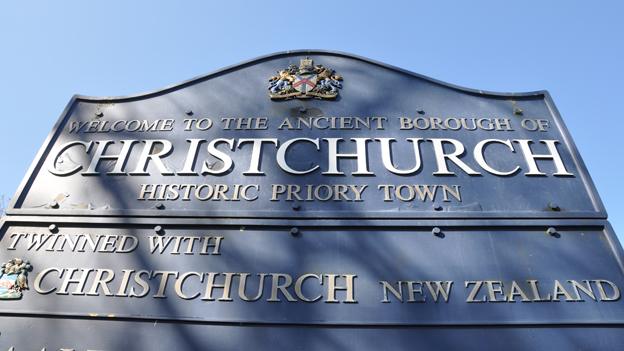
The Office for National Statistics divides England and Wales into over 35,000 areas averaging about 1,600 people - and two of the top 10 areas with the most elderly populations are in Christchurch.
The median age in the most elderly part of the south coast town is a rather remarkable 69.8 years old, with only a pocket of Eastbourne having an older median age of 71.1 years.
Away from these extremes, there are figures for wider council areas showing that Christchurch has a higher proportion of residents over the age of 65 than anywhere else in the UK, with almost 31%.
But what's it like?
Forget the prejudices. The High Street isn't some pensioner theme park. Admittedly alongside the usual sprinkling of chain stores, charity shops, estate agents, pubs and coffee bars, there's a prominent hearing aid shop. It has a large, enticing poster for ear wax removal.
The local free newspaper's sports page has energetic adverts for a stair lift, mobility scooters, a care home and an undertaker.
But it's a regular High Street, more affluent than most. There's no graffiti and the town has picture postcard views, with two rivers, the Stour and Avon, slipping away into the sea. Welcome to the mild west.
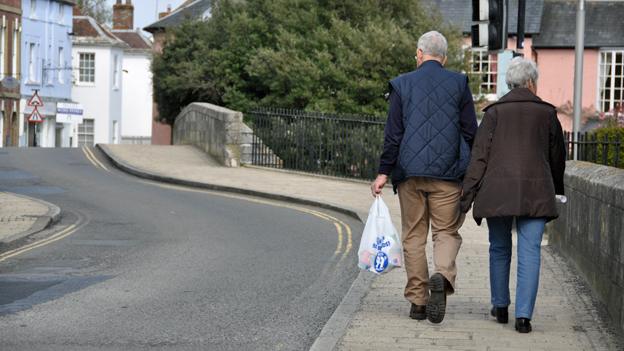
But what's really striking is the realisation that "old" is so vague a term that it's almost meaningless. In this seaside enclave of the elderly, there are so many different types of old.
Old age, which can now stretch elastically across three or even four decades, is all too often seen as a homogenous beige blur, without any of the gradations given to younger years.
Sit in the spring sunshine in Christchurch and you can see the different tribes of the elderly. There are the newly-retired Peter Pan pensioners in jeans, with more energy than those still slogging away at work. There's a bohemian figure sitting outside Costa coffee, looking as though he might have been in an unsuccessful rock band. He's got a walking stick, does that make him "elderly"?
Posing in a well-kept park are super-fit pensioner couples with expensive racing bikes and immaculate cycling gear. There are other uber-pensioner couples, lean and polished as vintage sports cars, walking beside the moored boats.
Then there are slow-moving shoals of older pensioners, many with walking aids, planning raiding parties on Marks and Spencer Simply Food.
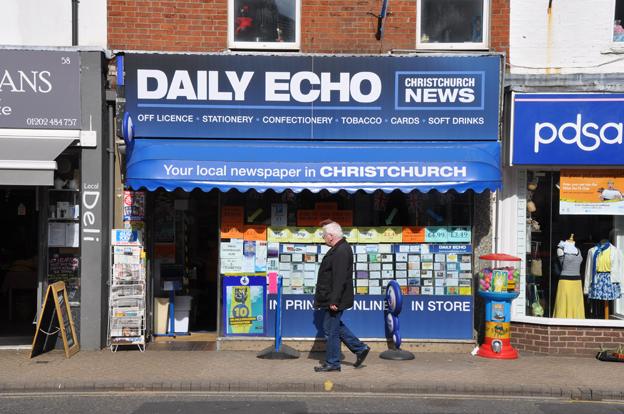
And then there are another frailer group, being pushed in wheelchairs, wrapped over in blankets. Some of these seem to be multi-generational pensioner families, with retired children pushing their even older parents. It's a tender scene.
On benches by the sea there are lone elderly figures, perched as still as gulls, staring out at the water. Another elderly couple, dressed head-to-toe in a kind of octogenarian Florida tennis outfit, are moaning volubly about an adult son who has been talking big about buying a house and who it turns out can't raise the deposit. They both grunt at what's being expected of them.
And retired people might not see themselves as any of these "tribes". In a conversation that couldn't be scripted, a genial elderly couple are sitting in the front of a pub looking at the High Street. They talk about their most pressing concerns, whether they've taken their medication, what night they should have a curry and whether Kylie Minogue would be worth seeing live.
And then the man, well north of 70, says: "I've never seen so many old people in my life." As he speaks, a man younger than both of them glides by the window on an electric mobility scooter.
So how did Christchurch and other places along the south coast get such an old population?
Prof Stephen Page, from Bournemouth University, says it's been associated with retirement since at least the 1930s, but it wasn't recognised as a significant demographic shift until the 1970s.
It's not that people live longer on the south coast - they move here in their latter years, buying a home and then perhaps moving into sheltered accommodation.
Retired people are drawn by the traditional appeals of the south coast, says Page. A milder climate, walks by the sea and leisure activities to pass the time. The south coast has "developed the infrastructure" for old age, he says.
It's not a move that's open to all. House prices are high and Page says pensioners relocating to the Dorset coast are more likely to be "affluent middle class".
As the older people become more dominant in the local economy, young people often go away to university and get jobs in bigger cities and don't come back, further distorting the local age profile.
There are more people over 65 in Christchurch than under the age of 30. But is this going to be a glimpse of the future as the population gets older?
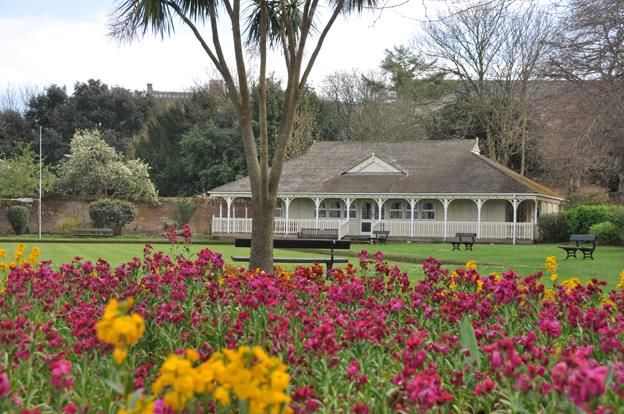
"Some of it is a taste of what's to come - but not for the big cities," says Page. He suggests there will be a growing polarisation by age. The south coast and market towns could become increasingly dominated by the elderly, while London and the big regional hubs will be much younger.
Already the populations of inner London and Christchurch could be two different countries. If the capital is young and intensely multicultural, Christchurch is much older and visibly much less diverse. This idea of an ageing population is a relatively recent phenomenon.
Christchurch Priory, which gave the town its name, is filled with memorials to what now seem like early deaths. Lavinia Oake "died of a decline" in 1804 at the age of 23. Her memorial in the medieval church is flanked by plaques to two people who died in their forties. A century ago, the median age of the entire country was only 25.
The local council is unsurprisingly lukewarm about Christchurch becoming a by-word for "the geriatric". And council spokesman Allan Wood points out that away from the elderly extremes there are plenty of young people living in the town.
He says that having so many retired people shouldn't be seen as a negative. Pensioners are the people who keep voluntary organisations running and it means Christchurch has a wealth of capable volunteers with a lot of spare time.
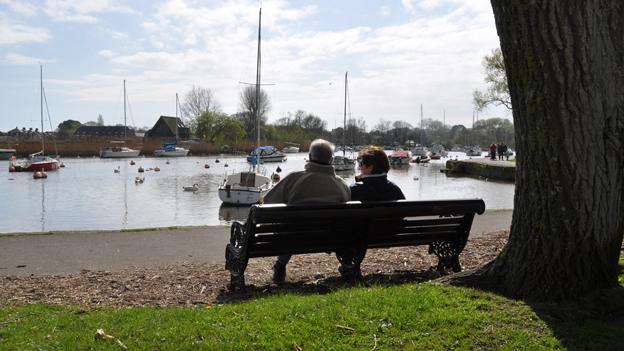
"From a community point of view it's a big plus," he says. It keeps theatres and cinemas open with people in their 70s and 80s continuing to play an active part in the life of the town.
As the entire country gets a little greyer, with more and more older people, we still seem to have difficulty embracing an ageing population as a success story.
Long life is seen as a mixed blessing. Old age is seen as an enemy rather than as an experienced guide. When the old timers of Christchurch shuffle past the shops, the adverts always show images of younger people. In parts of this town there are more people over 90 than in the 20-24-year-old bracket. But the retired people never get to see their own faces reflected.
Is the passing of time such a bad thing?
As the town's chintzy and rather enigmatic slogan promises: "Where time is pleasant."
Follow @BBCNewsMagazine, external on Twitter and on Facebook, external
Slideshow images subject to copyright. Music by KPM Music. Production by Paul Kerley. Publication date 9 May 2014.